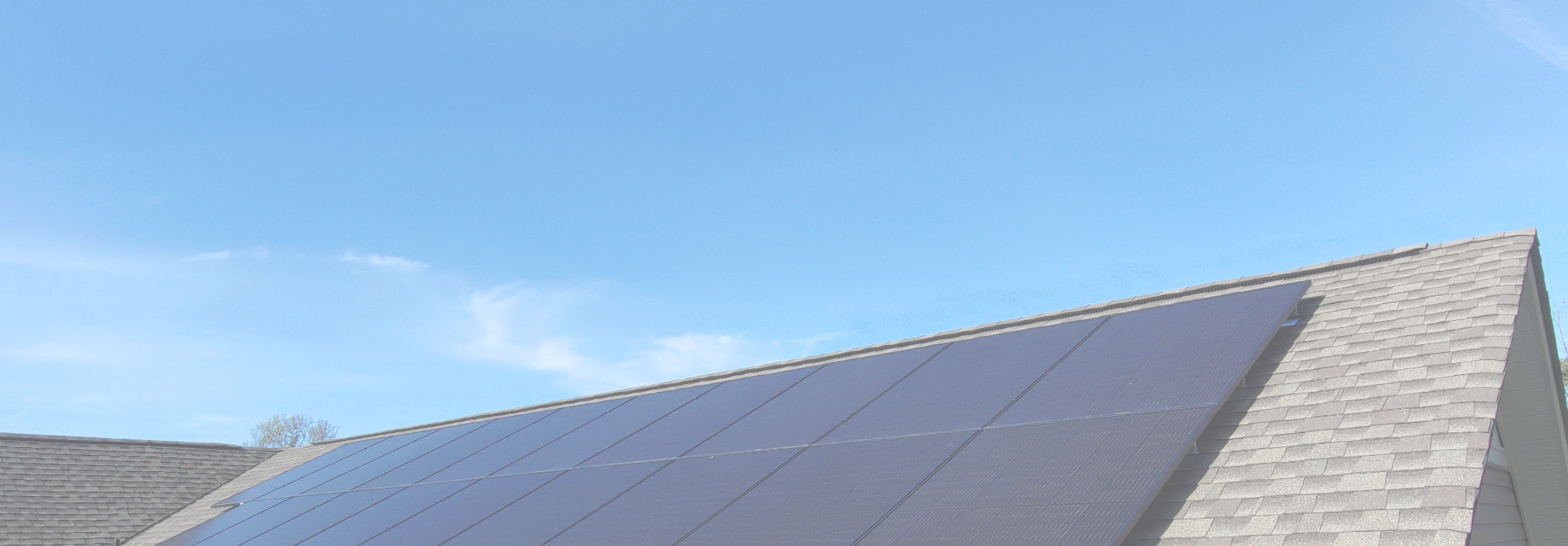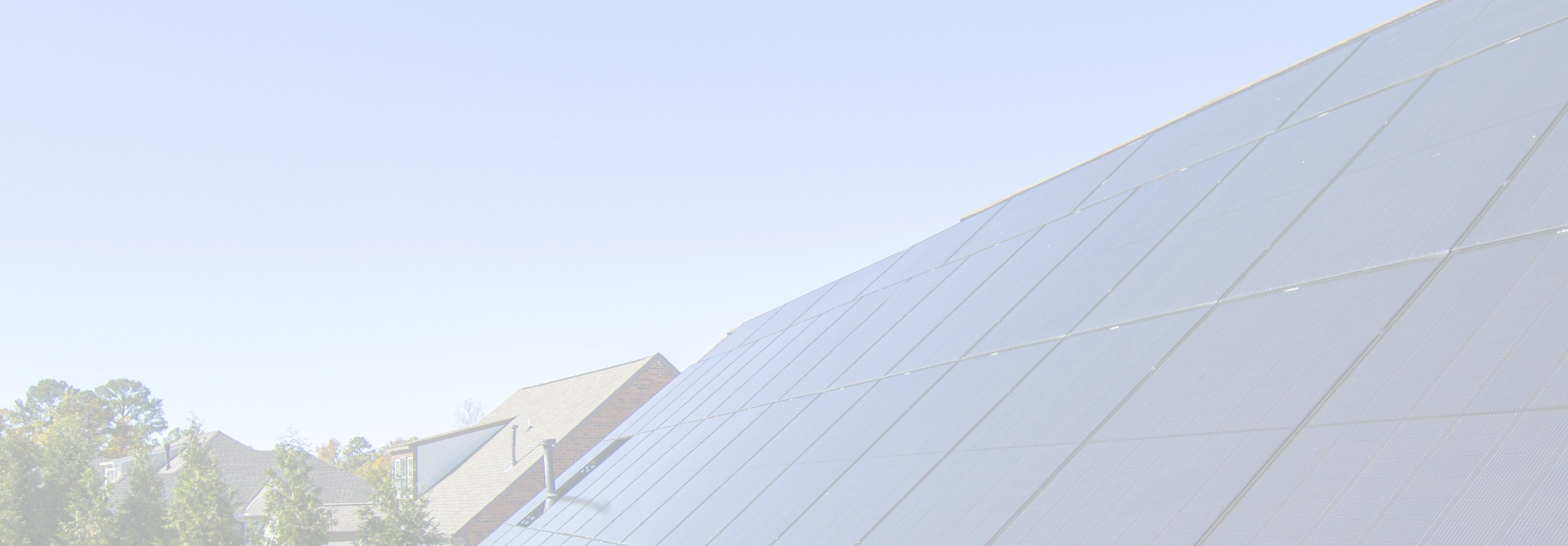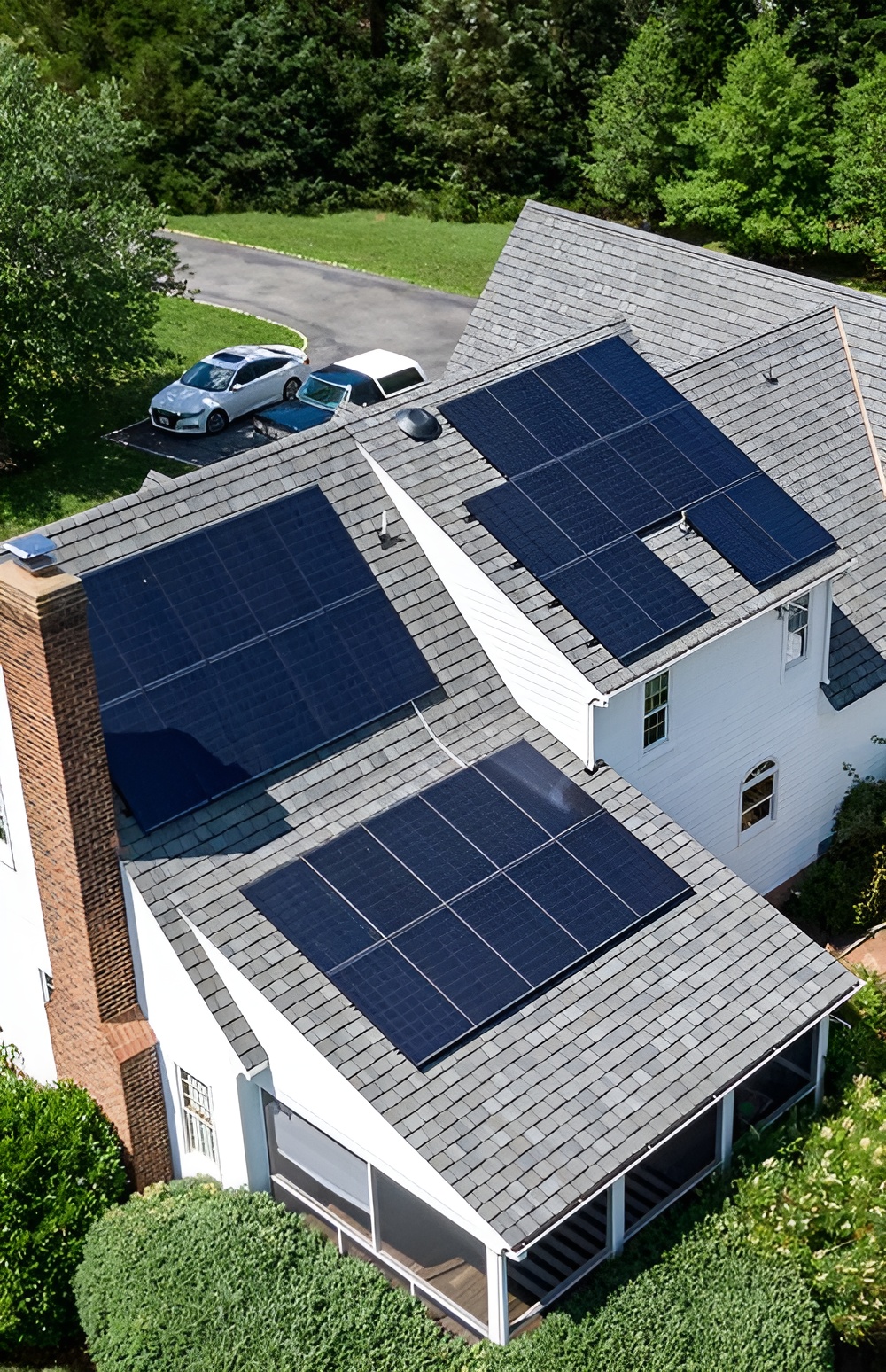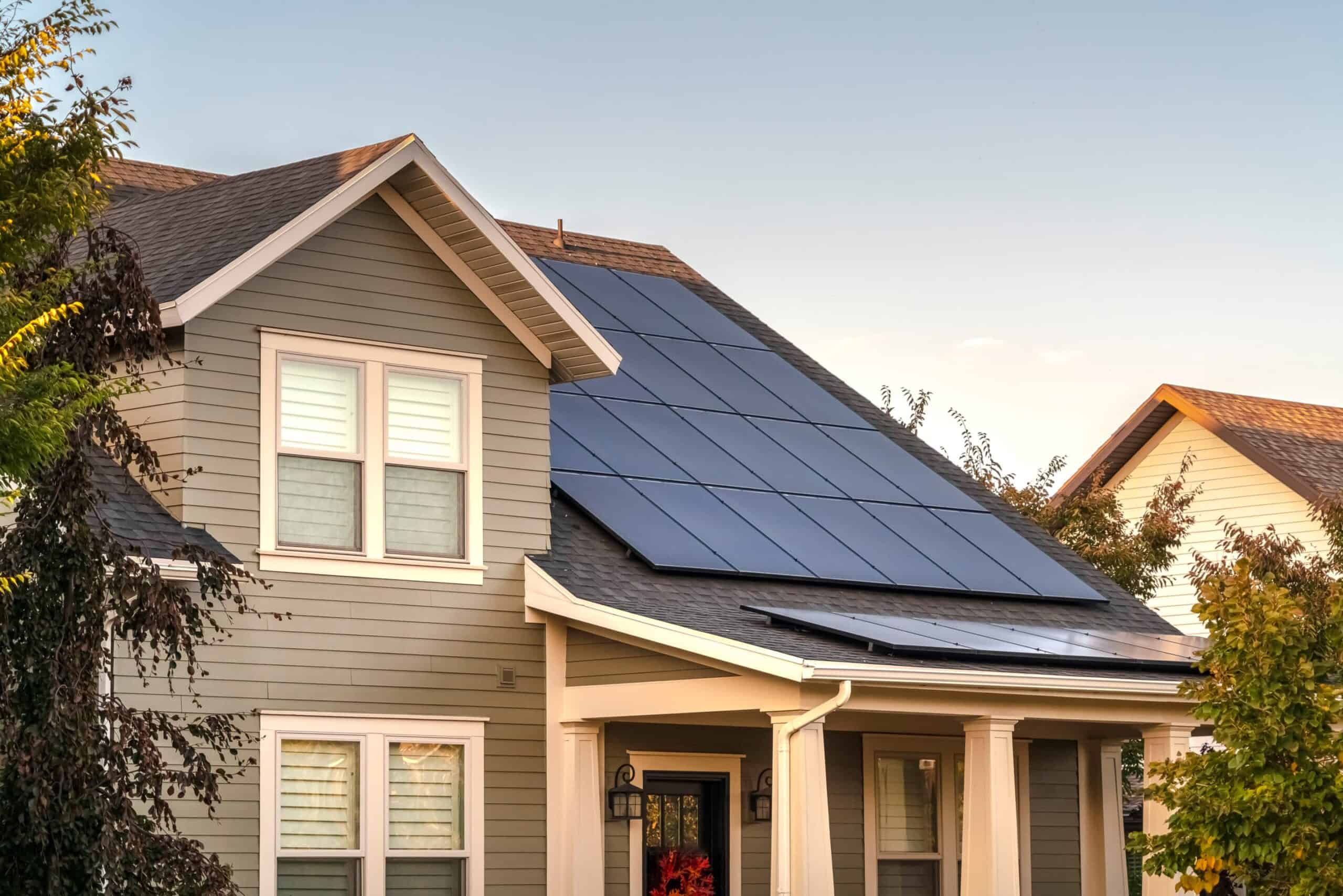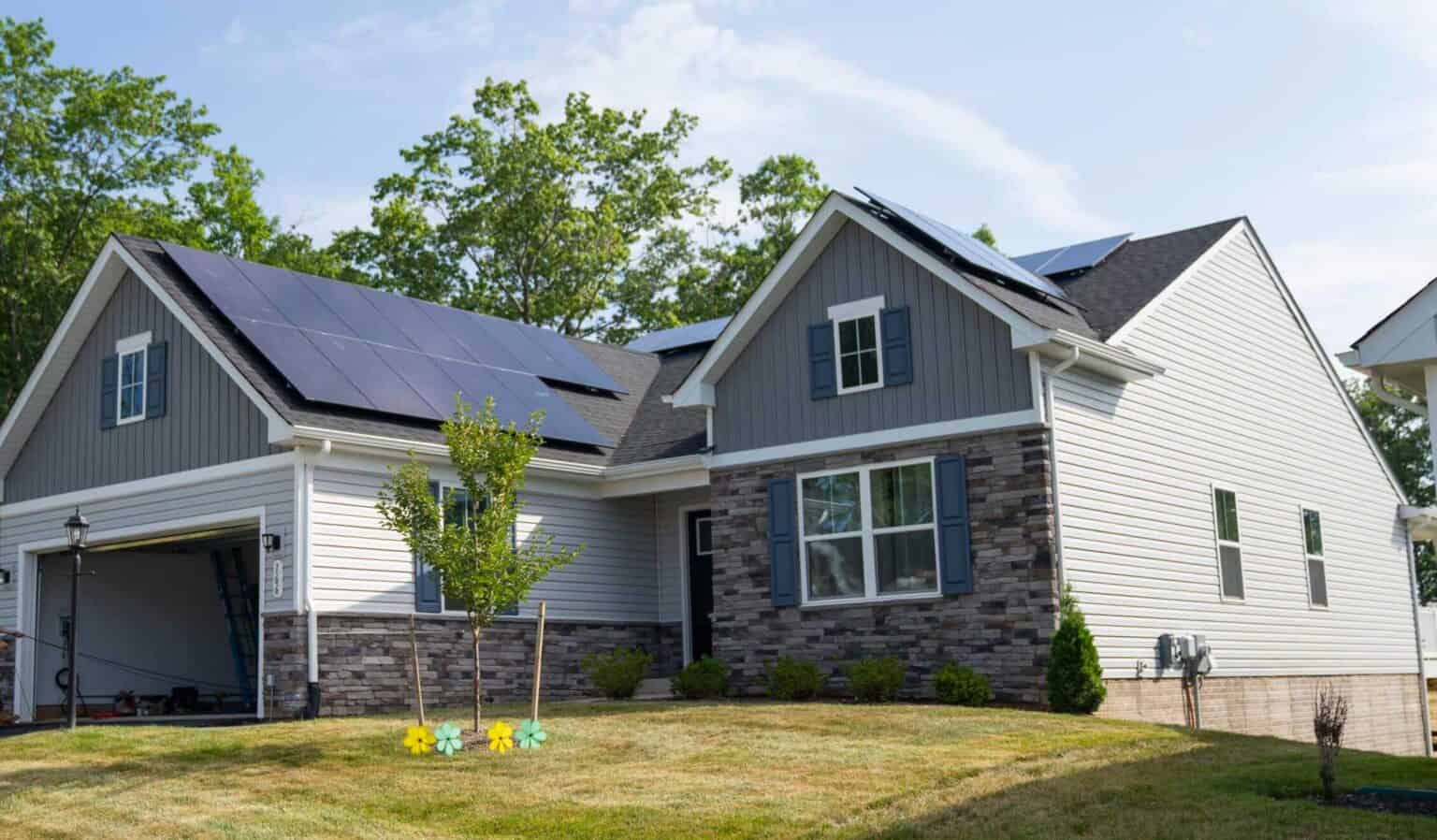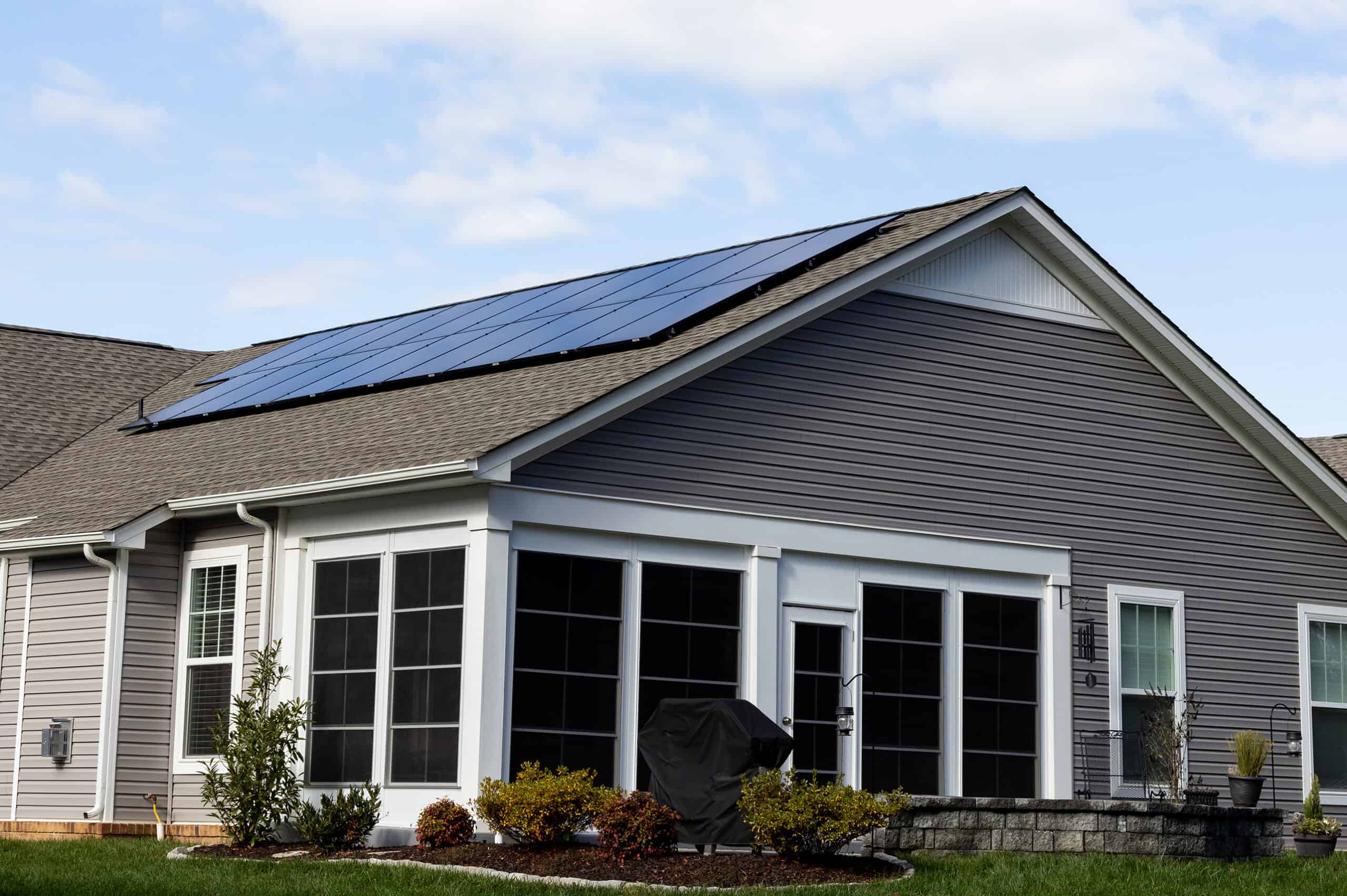Virginia Solar Panel HOA Laws
Everything you need to know about HOA Laws related to solar in Virginia plus an HOA action guide for homeowners.
Virginia’s Solar Rights for Homeowners
Curious about going solar in Virginia but weary of your HOA? Homeowners’ associations (HOAs) across the US and Virginia set guidelines for a neighborhood’s “look” or appearance, and sometimes this involves solar installations. Even with legal protections, many neighborhoods in Virginia require homeowners to work through their specific HOA’s approval process. At the bottom of this article, we’ve created a general HOA action guide on how to best approach this.
Virginia law protects your right to go solar. HOAs cannot prevent homeowners from installing solar panels unless their founding legal document—known as a “recorded declaration”—specifically prohibits solar setups. This declaration outlines all the governing rules for the HOA from its inception.
While HOAs can’t completely ban solar installations without an explicit clause, they are allowed to implement “reasonable restrictions” that affect aspects like system size, placement, and installation type. For instance, some HOAs might restrict ground-mounted solar arrays in their community.

Defining “Reasonable Restrictions” for Solar Installations
First enacted by the State of Virginia in 2014, the “reasonable restrictions” law still lacked a clear definition, leaving many homeowners confused. As a result, additional legislation has been passed over the years to clarify what qualifies as a “reasonable restriction”. Under this, the most recent law, updated in 2023:
- No association shall prohibit an owner from installing a solar energy collection device on that owner’s property unless the recorded declaration for the association establishes such a prohibition. However, an association may establish reasonable restrictions concerning the size, place, and manner of placement of such solar energy collection devices on property designated and intended for individual ownership and use.
- Any resale certificate issued to a purchaser shall contain a statement setting forth any restriction, limitation, or prohibition on the right of an owner to install or use solar energy collection devices on his property.
- A restriction shall be deemed not to be reasonable if application of the restriction to a particular proposal (i) increases the cost of installation of the solar energy collection device by five percent over the projected cost of the initially proposed installation or (ii) reduces the energy production by the solar energy collection device by 10 percent below the projected energy production of the initially proposed installation.
- The owner shall provide documentation prepared by an independent solar panel design specialist, who is certified by the North American Board of Certified Energy Practitioners and is licensed in Virginia, that is satisfactory to the association to show that the restriction is not reasonable according to the criteria established in this subsection.
- The association may prohibit or restrict the installation of solar energy collection devices on the common elements or common area within the real estate development served by the association. An association may establish reasonable restrictions as to the number, size, place, and manner of placement or installation of any solar energy collection device installed on the common elements or common area.
This clarification helps ensure that HOAs can’t impose limitations that make going solar unfeasible for Virginia homeowners.
Summary Understanding HOA Laws and Solar
1. Legal Relocation of Solar Rules
Virginia has shifted specific regulations regarding associations’ restrictions on solar panel installations to new sections in the Condominium Act and Property Owners’ Association Act (Sections 55.1-1951.1 and 55.1-1820.1) as of October 1, 2022. This change is organizational only, without altering the substance of the rules.
2. Guidelines for Solar Restrictions
Generally, associations cannot fully ban solar panels unless such a restriction is clearly stated in their recorded declarations. If not, they can enforce only “reasonable” limitations concerning the size, location, and installation approach for solar panels.
3. Reasonableness Standard
Restrictions are deemed “unreasonable” if they raise installation costs by over 5% or reduce energy output by more than 10%. Homeowners wishing to dispute such restrictions must provide expert documentation.
4. Limits on Common Areas
Associations can restrict solar panels on common property to avoid liability risks, and architectural reviews can be required for compliance. In unclear situations, seeking legal guidance is recommended.

Solar Panel Regulations Overview
Relocation of Solar Panel Restrictions
As of October 1, 2022, Virginia has updated the location of legal provisions on associations’ control over solar panel installations in the state now listed as Sections 55.1-1951.1 and 55.1-1820.1. The reclassification is purely structural, with no changes to the regulations themselves.
Solar Panel Regulations and Guidelines
Under Virginia law, community associations generally cannot prohibit the installation of solar panels on individual properties unless a specific ban is documented in their recorded declaration. If a community wishes to prohibit solar panels, this must be clearly outlined within the recorded declaration. Board-imposed rules alone cannot impose a blanket prohibition on solar installations. Know your rights!
Reasonable Constraints on Size, Location, and Placement
Associations may apply reasonable restrictions on solar panel installations concerning size, placement, and methods. These guidelines allow for rules on visibility, quantity, screening requirements, and acceptable locations. However, these restrictions are considered unreasonable if they increase installation costs by more than 5% or reduce energy output by more than 10%, making it easier for homeowners to challenge them.
Homeowner Challenges to Restriction Reasonableness
Homeowners maintain the right to contest the “reasonableness” of any restrictions. They must provide documentation from a certified solar panel design specialist like Dominion Energy Solutions, proving that the restrictions increase installation costs by over 5% or lower energy production by more than 10%.
Prohibitions on Common Areas
Associations are allowed to prohibit solar panels on common areas to minimize liability and avoid increased insurance costs. Boards may not have the authority to grant exclusive usage of common areas for solar installations. It is advised that boards consult legal counsel when addressing requests for solar panel installations in these shared spaces.
Architectural Review Procedures
Associations can still mandate architectural review processes for solar panel installations to ensure alignment with community standards. Applications for solar installations can be denied if they do not meet architectural requirements. Homeowners may need to provide additional documentation if they wish to demonstrate that a restriction is unreasonable. In uncertain cases, legal guidance can provide clarity.

HOA Action Guide
Step 1: Understand Your State’s Solar Access Laws
Around 25 states have solar access laws to help protect your right to install solar energy systems, while an additional 15 states offer limited protection for solar easements. These laws can vary significantly, so it’s essential to know what applies in your state. A good place to start is with the “Solar Rights & Easements by State” resource from the Community Associations Institute.
Step 2: Review Your HOA’s Stance on Solar
Some HOAs may already have policies in place that support solar access, but many don’t. Unlike government entities, HOAs are private organizations, which means they may not grant the same level of rights and protections. However, HOAs are accountable to their community and can modify policies if there’s enough support. Our guide suggests strategies for working with your HOA to modify outdated solar policies, including common misconceptions like panel aesthetics or property values concerns.
Step 3: Present Your Case for Solar Access
If you find your HOA has imposed barriers to going solar, the next step is to rally support from neighbors and encourage your HOA board to rethink its stance. Many HOAs are open to change if residents make a strong case. Our guide provides tips on presenting your case effectively to gain support, even from those who may not plan to go solar themselves.
Step 4: Build a Pro-Solar Community
Neighbors who support solar are valuable allies. While HOA boards may not operate exactly like elected government bodies, they generally respond to resident concerns. Our experience shows that people are often supportive of solar rights if the benefits are clearly explained. The guide includes strategies for presenting a compelling case to encourage support.
Step 5: Meet with Your HOA Board
With community support on your side, it’s time to present a formal proposal to the HOA board. Highlight the support of other residents, make a persuasive case, and directly ask the board to update its policies on solar installations.
Step 6: Address Solar Access Objections
Some HOA boards might hesitate or delay their decision. If this happens, continue building support among neighbors, and consider reaching out to local media to raise awareness. The board may ask for a review of your solar plan or issue a response that conflicts with your state’s solar access law. Our guide details various ways to address these scenarios, and for complex cases, our Solar Help Desk can provide expert advice.
Step 7: Celebrate and Go Solar!
If the board approves your proposal, congratulations! You’ve secured not only your right to go solar but expanded the opportunity for more HOA residents to install solar.
Need More Help? Contact Dominion Energy Solutions!
As one of the leading solar installers on the East Coast, Dominion Energy Solutions has worked with countless homeowners and HOAs to find solutions that work for everyone. Our process of developing site plans can take into account any and all considerations providing homeowners with savings on their electric bills.
